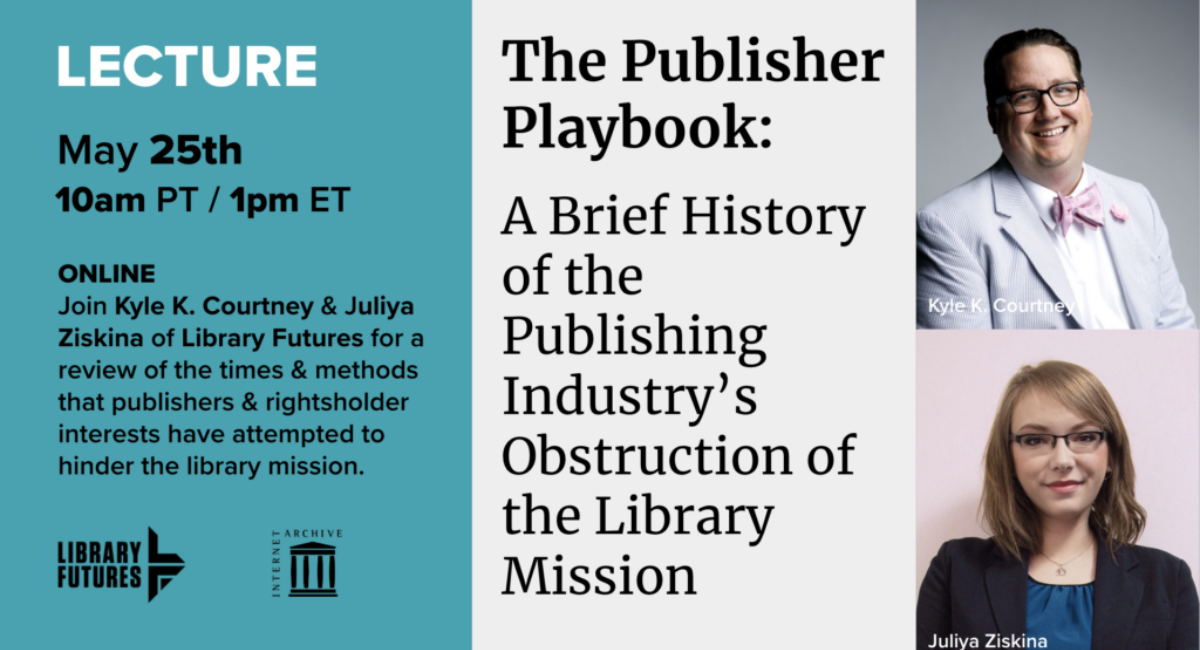Libraries have always faced challenges in providing innovative access to collections. Throughout history, the rightsholder and publishing industry have obstructed the library mission, impeding libraries’ ability to serve the public interest. This article examines the tactics employed by publishers, which we refer to as the “publishers’ playbook.” It reviews the historical struggles libraries and their readers have faced in defending their mission and serving the public good. Despite these obstacles, Congress and the courts have consistently supported libraries’ efforts to expand access to information for the benefit of the public. This article provides a comprehensive overview of the publishers’ playbook and the ongoing litigation surrounding controlled digital lending.
To read the full article, titled “The Publisher Playbook: A Brief History of the Publishing Industry’s Obstruction of the Library Mission,” please click the link.
ABOUT THE AUTHORS
- Kyle K. Courtney: Kyle K. Courtney is a lawyer and librarian specializing in copyright, access, and preservation issues. He currently serves as the Copyright Advisor and Program Manager at the Harvard Library Office for Scholarly Communication. Kyle is the co-author of the White Paper on Controlled Digital Lending of Library Books and has been actively involved in promoting fair use and copyright awareness. He has made significant contributions to the field through initiatives like Copyright First Responders, Fair Use Week, and crowdsourcing copyright and fair use decisions. In addition to his role at Harvard, Kyle holds a dual appointment at Northeastern University and teaches courses on cyberlaw and legal research and writing.
- Juliya Ziskina: Juliya Ziskina is an attorney, artist, photographer, and open access advocate based in Brooklyn, New York. She obtained her JD from the University of Washington, where she played an instrumental role in establishing an institutional open access policy. Juliya has been actively involved in promoting open access and advancing the Fair Access to Science and Technology Research Act (FASTR). She has participated in events like OpenCon and the American Libraries Association Annual Conference, where she presented on advancing open access through library partnerships. Juliya’s passion for information access and the law stems from her early involvement in grassroots initiatives, including co-founding an underground student newspaper. She strongly believes in the free flow of information and the human side of the law.
